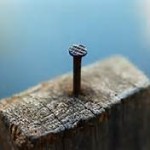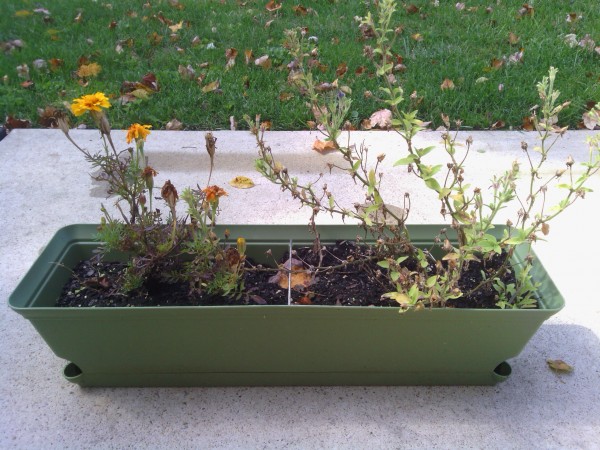A student recently asked me if animal experimentation is wrong from a biblical perspective. This is an important question that actually gives opportunity to highlight the invaluable nature of humanity, the preciousness of animals, and the incomprehensible love of God.
I will say at the outset that my heart is particularly grateful for animals used in the field of medicine, as the insulin I had to inject for survival during my first years as an insulin-dependent diabetic was pork insulin. Pork insulin was made from pig pancreases. As Erika Gebel, Ph.D., notes, “We’ve come a long way since more than two tons of pig parts were required to produce eight ounces of purified insulin. Today, the insulin that comes in vials, pens, and pumps is not from pigs and cows but from designer microorganisms. These critters provide more of the hormones (and in forms more similar to the body’s own) to the millions of people across the globe who depend on a steady stream of high-quality insulin.” (1)
All of us are touched personally by disease and deformity. Everyone loves or knows someone who survives and/or benefits because of animal use in medicine. Each of us has also been touched by the lives of animals in other ways. God has made them good and beneficial for a number of reasons. We enjoy the companionship of domesticated animals as pets and the beauty and mystery of other creatures.
But as our culture continues to deemphasize the value of human life while simultaneously emphasizing the significance of the environment and animals, we begin to see questions surface. As Christians, we rightfully need to think through the issues using biblical principles; for the biblical perspective is the only perspective that is always correct and never changing. Despite our culture’s changing standards, God’s Word is timeless, and its principles stand true through all of history. As we will explore in the Scriptures in a moment, human value is above that of both the environment and animals (though the other parts of creation are vital and blessed!). William A. Dembski (mathematician, philosopher, and theologian) asserts, “Genesis clearly teaches that humans are the end of creation. For instance, Genesis describes the creation as merely ‘good’ before humans are created but describes it as ‘very good’ only after they are created. God’s activity in creation is therefore principally concerned with forming a universe that will provide a home for humans. Although this anthropocentrism sits uneasily in the current mental environment, it is not utterly foreign to it. Indeed, the intelligibility of the physical world through our intellects and, in particular, through such intellectual achievements as mathematics suggests that we live in a meaningful world whose meaning was placed there for our benefit.” (2)
I appeal to two passages of Scripture at the outset. First, Genesis 1:20-28 (ESV):
-
And God said, “Let the waters swarm with swarms of living creatures, and let birds fly above the earth across the expanse of the heavens.” So God created the great sea creatures and every living creature that moves, with which the waters swarm, according to their kinds, and every winged bird according to its kind. And God saw that it was good. And God blessed them, saying, “Be fruitful and multiply and fill the waters in the seas, and let birds multiply on the earth.” And there was evening and there was morning, the fifth day.
-
And God said, “Let the earth bring for the living creatures according to their kinds – livestock and creeping things and beasts of the earth according to their kinds.” And it was so. And God made the beasts of the earth according to their kinds and the livestock according to their kinds, and everything that creeps on the ground according to its kind. And God saw that it was good.
-
Then God said, “Let us make man in our image, after our likeness. And let them have dominion over the fish of the sea and over the birds of the heavens and over the livestock and over all the earth and over every creeping thing that creeps on the earth.”
-
So God created man in his own image, in the image of God he created him; male and female he created them.
-
And God blessed them. And God said to them, “Be fruitful and multiply and fill the earth and subdue it, and have dominion over the fish of the sea and over the birds of the heavens and over every living thing that moves on the earth.”
Notice that the living creatures were created and deemed “good” by their Creator. Notice also that when God created man and woman, He jumped into a new paradigm, making them “in his own image” – unlike anything else He had made. Humans were designed to have a unique relationship with God that no plant or animal or galaxy can ever have, no matter how beautiful or enjoyable. Additionally, humans were instructed to “have dominion over the fish of the sea and over the birds of the heavens and over every living thing that moves on the earth.” Part of the human task of filling and subduing the world God created was to dominate the other creatures. Certainly this dominion is not for evil purposes, as evil goes against the very nature of God. The subduing of creation is for the purpose of building society.
The second passage to which I appeal at the start is Psalm 8:3-8 (ESV):
-
When I look at your heavens, the work of your fingers, the moon and the stars, which you have set in place, what is man that you are mindful of him, and the son of man that you care for him?
-
Yet you have made him a little lower than the heavenly beings and crowned him with glory and honor. You have given him dominion over the works of your hands; you have put all things under his feet, all sheep and oxen, and also the beasts of the field, the birds of the heavens, and the fish of the sea, whatever passes along the paths of the seas.
We see here reiterated the emphasis of Genesis. Added though, is the truth that people are made just a bit lower than heavenly beings and are crowned with glory and honor. All things are put under our feet in order that our true destiny of godly glory and honor is fulfilled. Again, I add that it is dishonorable to mistreat any part of God’s creation out of a malicious heart. Moving toward honor and glory in a broken and sinful world must happen as we seek to do so within the parameters of God’s plan, for honor and glory can only come from Him.
Our Lord clearly tells us that unneeded cruelty is wrong. Proverbs 12:10 (ESV) proclaims, “Whoever is righteous has regard for the life of his beast, but the mercy of the wicked is cruel.” Jesus Himself often uses the metaphor of being a Shepherd, and He even speaks of “laying down his life for the sheep” (John 10:15, ESV). When we look at righteous King David of the Old Testament, we see a man who valued the keeping of His sheep enough to risk his own life in protecting them from lions and bears (1 Samuel 17:34-35). In fact, when necessary, he would kill the beasts if both the life of the sheep and his life were threatened by them. So we see – that in a fallen world – the best option to protect what is valuable can involve death.
Research seems to demonstrate that domesticated animals can be a benefit to their owners in terms of emotional and physical health. This seems right, as God made animals to live on the same earth as humans, yet under our ultimate dominion and as part of the plan for us. In the same way, animals can benefit humans by providing health research for the treatment and cure of illness and disease.
Here is the ultimate biblical point that brings home the case for both the precious nature of animals and the allowance for their use in saving human health and life. Think about our redemption from sin. Our salvation from our own sinful nature is necessary to preserve our eternal life with God. Without salvation from sin, we die one day physically and we die spiritually for an eternity. Our Creator thought our redemption so vital that He provided His own Son as the sacrifice to stand in our place. His death on the Cross and His blood that was shed appease the wrath of a holy God against our sin (Ephesians 1:7).
God sacrificed Himself in real flesh – and in real space and time – to save us. (No other religion’s god claims to have done this utterly unique and historically evidential act.) Our value is inestimable. Not only do we read of our worth in His Word, but we know of our value because the infinite Son of God gave His own life for ours. Two thousand years ago, Jesus began the restoration project of giving back to us our intended glory under the sovereignty of God. Made in His image to reign under Him, we will see that reality in the future. The cost was the very life of the Son of God.
Now think about this. Before Jesus came to earth to die and do the most pivotal thing God could do to demonstrate our human value and His love for us, how did He instruct humans to look forward by faith to that coming promise? The answer is critical: He told humans to make animal sacrifices. Innumerable animals were continuously slain so that their precious blood could point to the perfect blood of Jesus. As Scott Langston and E. Ray Clendenen note, “Leviticus 1-7 gives the most detailed description of Israel’s sacrificial system, including five types of sacrifices.” (3) As a matter of fact, when Adam and Eve attempted to cover themselves with fig leaves after the shame of their sin, God quickly demonstrated the inadequacy of such an attempt, and made them garments of skin (Genesis 3:7, 21). Skin clothing requires the death of an animal. And from then on, humans were instructed to deal with their sins by shedding animal blood to look forward to the final answer in the blood of Jesus (Genesis 4:3-5).
Sacrificial animals were precious enough (having been made by God) to foreshadow the work of Jesus. But they were not as valuable as the people for whom their blood would temporarily point to redemption by Jesus. God Himself makes clear both animal value and the limits of that value when compared to humanity. To God, our spiritual hope is worth animal sacrifice. Most assuredly, then, our physical health is worth it, too.
God cares for the animals. “He gives to the beasts their food, and to the young ravens that cry” (Psalm 147:9, ESV). Jesus said, “Look at the birds of the air; they neither sow nor reap nor gather into barns, and yet your heavenly Father feeds them” (Matthew 6:26a, ESV). But then He directly adds, “Are you not of more value than they?” (Matthew 6:26b) This rhetorical question Jesus asks, which follows an affirmation of His care for little birds, drives home the point. Animals are important. God sees all that happens with them. But people are more important, and one of the ways God has certainly provided for humans is by animal life.
We rejoice in the New Heavens and New Earth God that God is creating, because the sin curse will be erased and all disease eradicated (Revelation 22:3). People and animals will live without the hindrance of sin’s nasty effects. For now, we thank God for His calling on us to take dominion of this world under His sovereignty. Above all, we thank Him for the unimaginable price He paid for our entrance to the new world – foreshadowed at great cost by precious animals – and fulfilled in His Son. As I Peter 1:18-21 (ESV) tells us:
-
Knowing that you were ransomed from the futile ways inherited from your forefathers, not with perishable things such as silver or gold, but with the precious blood of Christ, like that of a lamb without blemish or spot. He was foreknown before the foundation of the world but was made manifest in the last times for the sake of you who through him are believers in God, who raised him from the dead and gave him glory, so that your faith and hope are in God.
All of us who value animals and what they provide by way of medical help and emotional help rejoice in this promise about the millennial reign of Christ in the beginning of that new world (Isaiah 11:6-9, ESV):
-
The wolf shall dwell with the lamb, and the leopard shall lie down with the young goat, and the calf and the lion and the fattened calf together; and a little child shall lead them. The cow and the bear shall graze; their young shall lie down together; and the lion shall eat straw like the ox. The nursing child shall play over the hole of the cobra, and the weaned child shall put his hand on the adder’s den. They shall not hurt or destroy in all my holy mountain; for the earth shall be full of the knowledge of the LORD as the waters cover the sea.
References:
(1) Erika Gebel. “Making Insulin: A behind-the-scenes look at producing a lifesaving medication.” Diabetes Forecast. July 2013. Web. Jan. 27 2015.
(2) William A. Dembski, The End of Christianity (Nashville, TN: B&H Publishing Group, 2009), 143-44.
(3) Scott Langston & E. Ray Clendenen, Holman Illustrated Bible Dictionary (Nashville, TN: Holman Bible Publishers, 2003), 1429.







